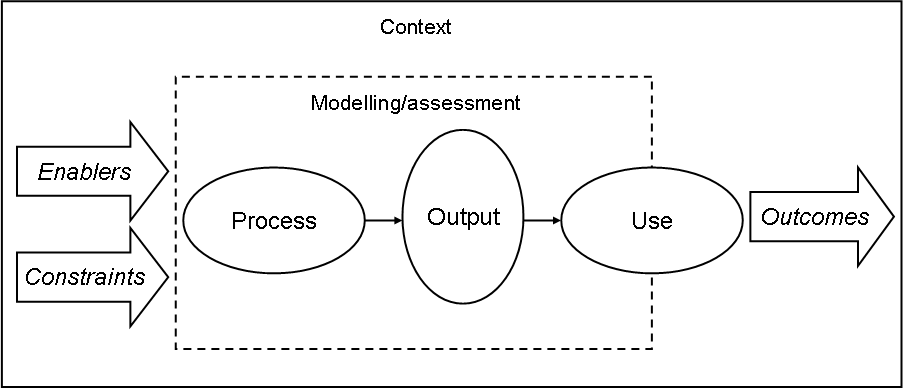Information structure of Open Assessment: Difference between revisions
Jump to navigation
Jump to search
(TOC: flesh over titles) |
m (→Results) |
||
| Line 33: | Line 33: | ||
* [[Assessment]] report subattributes | * [[Assessment]] report subattributes | ||
* [[Attribute]]: parts: actual content, narrative description, discussion (see [[Universal products]]) | * [[Attribute]]: parts: actual content, narrative description, discussion (see [[Universal products]]) | ||
* [Discussion]] [[Dealing with disputes]]: | * [[Discussion]] [[Dealing with disputes]]: | ||
** parts of discussion (hierarchy does NOT show temporal issues but targets of arguments) | ** parts of discussion (hierarchy does NOT show temporal issues but targets of arguments) | ||
** (parts of argument?) | ** (parts of argument?) | ||
| Line 40: | Line 40: | ||
* [[Class]] (add this to the glossary) | * [[Class]] (add this to the glossary) | ||
* Abstraction level (not written down?) | * Abstraction level (not written down?) | ||
* Performance, including uncertainty [[Evaluating assessment performance]], [[Assessing uncertainty]], [[Quality assurance and quality control]] | * Performance, including uncertainty [[Evaluating assessment performance]], [[Assessing uncertainty]], [[Quality assurance and quality control]], [[Purpose and properties of good assessments]] | ||
=== Conclusions === | === Conclusions === | ||
Revision as of 13:50, 6 June 2008
<accesscontrol>Members of projects,,Workshop2008,,beneris,,Erac,,Heimtsa,,Hiwate,,Intarese</accesscontrol>
This is a manuscript about the information structure of Open Assessment.
Abstract
Background
Methods
The work is based on research questions. The current answers to these questions should be seen as hypotheses that will be tested against observations and practical experience as the work goes on. The research questions are presented in the Results section together with the current answer.
The scientific methods that have been used as the foundation of this work are briefly presented here.
Results
- Universal products: attributes
- Assessment report main attributes
- Variable
- Assessment report subattributes
- Attribute: parts: actual content, narrative description, discussion (see Universal products)
- Discussion Dealing with disputes:
- parts of discussion (hierarchy does NOT show temporal issues but targets of arguments)
- (parts of argument?)
- Method (descrbied in Process)
- Model, Tool (what is the difference between the two?)
- Class (add this to the glossary)
- Abstraction level (not written down?)
- Performance, including uncertainty Evaluating assessment performance, Assessing uncertainty, Quality assurance and quality control, Purpose and properties of good assessments
Conclusions
Background
Methods
Results
Attributes:
- Name
- Scope
- Definition
- Result
